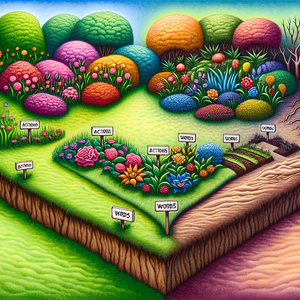Virtual Reality and the Future of Empathy

Virtual reality's most defining feature is its ability to create immersive experiences that transport users into entirely different worlds. Unlike traditional media, such as books or films, which can portray diverse narratives from a distance, VR allows individuals to experience situations firsthand. This immersive quality significantly heightens emotional engagement and understanding, leading to a deeper sense of empathy. For example, the project "The Night Cafe" invites users to step into the world of Vincent van Gogh. This experience goes beyond mere artistic appreciation; it evokes feelings of connection to the struggles and mental health challenges the artist faced. Similarly, "W360: The Journey of a Refugee" places users in the shoes of a refugee, allowing them to navigate the emotional and physical hurdles of displacement. By stepping into these scenarios, users are inspired to develop compassion for those who face similar hardships.
Innovative Projects Fostering Empathy
Several VR projects have emerged with the explicit goal of fostering empathy among users. One notable example is "Clouds Over Sidra," a VR film that portrays the life of a young Syrian girl living in a refugee camp. This immersive experience humanizes the refugee crisis by moving beyond statistics and headlines to reveal the personal stories and struggles of individuals affected by conflict. The emotional impact of such narratives can lead to increased awareness and advocacy for those facing similar situations in the real world. Another compelling initiative is "The 1000 Cut Journey," which allows users to experience life as a Black man in America grappling with systemic racism. By placing users in various scenarios that illustrate the challenges of racial inequality, this project aims to cultivate a greater understanding of the pervasive issues that marginalized communities confront daily. Engaging users in these narratives through VR serves as a powerful educational tool, promoting social change and encouraging discussions about race and equity.
Bridging Social Divides
The potential of VR to foster empathy extends beyond individual experiences; it can also facilitate dialogue and connection among diverse groups. Virtual environments serve as safe spaces where individuals can engage in difficult conversations, share their stories, and learn from one another. Initiatives like "The Empathy Lab" have created virtual platforms where participants from different backgrounds can come together, promoting understanding and reducing prejudice. Moreover, educational institutions are beginning to incorporate VR into their curricula as a means of teaching cultural competence and empathy. Programs that enable students to experience the lives of others through VR can help dismantle barriers and encourage future generations to approach differences with curiosity rather than fear. By integrating VR into education, we can foster a culture of empathy and understanding from a young age.
Challenges and Considerations
While VR holds immense potential for fostering empathy, it is not without challenges. Ethical considerations regarding the portrayal of sensitive subjects are paramount; creators must ensure that stories are told with respect and authenticity. Misrepresentation can lead to further stigmatization and misunderstanding, undermining the very purpose of these projects. Additionally, access to VR technology remains limited for some communities, raising concerns about inclusivity and representation. As VR technology continues to evolve, it is essential for creators to prioritize diverse voices and ensure that VR experiences are accessible to all demographics. Bridging the digital divide is crucial to maximizing the potential of VR as a tool for empathy.
Virtual reality is emerging as a transformative tool for fostering empathy and understanding among diverse communities. By immersing users in the experiences of others, VR can challenge perceptions, promote social connection, and inspire action. As innovative projects continue to push the boundaries of what is possible within this medium, the potential for VR to serve as a vehicle for empathy and social change becomes increasingly evident. In a world marked by division, embracing the possibilities of virtual reality may be a crucial step towards building a more compassionate and understanding society. By harnessing the power of VR, we can not only envision a more empathetic future but also actively work towards realizing it.
VR Experience Designer
Oculus, Unity Technologies, and various educational institutions focusing on experiential learning.
Job Description
Design and develop immersive VR experiences that foster empathy and understanding among users.
Collaborate with psychologists and sociologists to ensure accurate representation of diverse narratives.
Utilize tools such as Unity and Unreal Engine to create interactive environments.
Empathy Research Specialist
Non-profits focused on social issues, universities, and think tanks.
Job Description
Conduct research on the psychological impacts of VR experiences on users' empathy levels and social attitudes.
Analyze data and publish findings to guide future VR projects aimed at fostering social change.
Collaborate with VR developers to refine experiences based on research insights.
Social Impact Producer
VR production studios, NGOs, and social enterprises.
Job Description
Oversee the development and production of VR projects that aim to address social issues and promote empathy.
Work with diverse communities to gather stories and ensure authentic representation in content.
Manage funding and partnerships with organizations focused on social justice and advocacy.
Cultural Competence Educator
School districts, educational technology firms, and universities.
Job Description
Develop VR-based curricula that teach students about cultural differences and empathy through immersive experiences.
Facilitate workshops and training sessions using VR as a tool for enhancing understanding among students.
Collaborate with educational institutions to implement VR programs in classrooms.
Ethical VR Content Consultant
VR development companies, non-profit organizations focused on media ethics, and academic institutions.
Job Description
Advise VR developers on ethical storytelling practices, especially when dealing with sensitive topics.
Conduct workshops and create guidelines to ensure respectful representation of marginalized communities in VR narratives.
Work with legal teams to navigate the complexities of copyright and representation rights in VR content.


